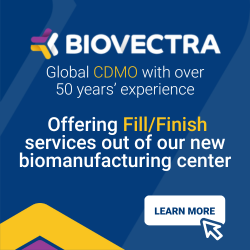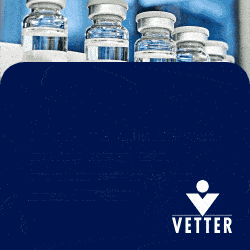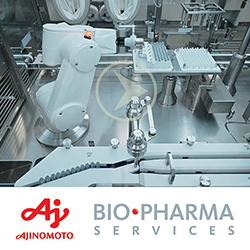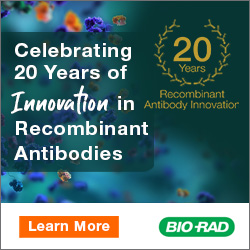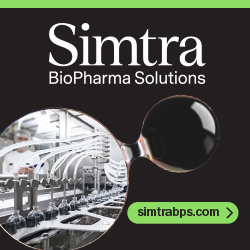3/13/2012
Aegerion Pharmaceuticals Submits US & EU Marketing Applications
Aegerion Pharmaceuticals, Inc. recently announced it has submitted an NDA to the US FDA and an MAA to the EMA seeking approval of Aegerion’s lead investigational therapeutic lomitapide as an adjunct to a low fat diet and other lipid-lowering therapies to reduce cholesterol in patients with Homozygous Familial Hypercholesterolemia (HoFH).
Lomitapide is a small molecule, microsomal triglyceride transfer protein inhibitor, or MTP-I, in development as a once-daily oral therapeutic for the treatment of HoFH, a rare genetic lipid disorder resulting in an accumulation of (LDL-C cholesterol in the blood. Patients diagnosed with HoFH typically have as much as three to six times the normal amount of LDL-C while on a variety of lipid-lowering drug treatments, putting them at risk for a major cardiovascular event.
“The submission of our NDA and MAA filings represents a significant corporate accomplishment,” said Marc D. Beer, Chief Executive Officer. “In 2011, we assembled a team of experts with deep experience in orphan and genetic diseases, dedicated to working with the worldwide HoFH community. This is an important step toward making lomitapide available to patients suffering from HoFH who currently have inadequate treatment options.”
Lomitapide holds orphan drug designation for the treatment of HoFH in the
Aegerion Pharmaceuticals, Inc. aspires to change the way rare, genetic lipid disorders are treated. It is an emerging biopharmaceutical company focused on the development and commercialization of novel life-altering therapeutics for debilitating and often fatal orphan diseases. For more information, visit http://www.aegerion.com.
CiToxLAB Increases Inhalation Test Capabilities
CiToxLAB recently announced it has increased its inhalation test capabilities in North America and
CiToxLAB-North America has opened a new state-of-the-art rodent and non-rodent inhalation facility following demand from clients, adding the ability to evaluate pharmaceuticals, biological compounds, and inhalation devices. For pharmaceutical companies, inhalation tests are required for a range of drugs, including those intended to treat allergy, asthma, or COPD patients. For chemical companies, there is a need to test the consequences of inhaling chemical products, especially within the REACH (Registration, Evaluation, and Authorisation of Chemicals) program.
The studies conducted in CiToxLAB-North America will utilize seven rodent suites and five non-rodent suites, and the facility is able to perform studies by the inhalation route in all species, including NHPs, enabling the CiToxLAB group to conduct work not currently performed in
In
The inhalation teams at CiToxLAB-Hungary and North America are supported by veterinary pathologists qualified to DVM level and experienced in inhalation studies, with board certified pathologists in
“We are now able to offer this type of inhalation testing on both sides of the
The CiToxLAB Group offers a comprehensive range of preclinical services to meet the needs of pharmaceutical, chemical, and biotechnology companies worldwide. CiToxLAB carries out studies in general and reproductive toxicology, carcinogenicity, bioanalysis, immunology, and safety pharmacology. For more information, visit http://www.citoxlab.com.
Lipid Therapeutics Licenses European Rights to its Lead Product
Dr. Falk Pharma GmbH and Lipid Therapeutics, a biotechnology company focused on novel treatments for inflammatory bowel disease, recently announced they have entered into a licensing agreement for the European rights to Lipid Therapeutics’ lead product, LT-02, for ulcerative colitis (UC). The terms of the license include an up-front fee, milestones, and royalties.
Following a co-development and option agreement in 2009, Dr. Falk GmbH will assume full responsibility for the further development and commercialization of LT-02 in
LT-02 is a delayed-release formulation of phosphatidylcholine designed to improve the barrier function of the mucosal layer of the colon. Data from a positive European Phase II trial conducted in 156 patients with UC will be presented at the Digestive Disease Week (DDW) conference in
“We are pleased to exercise our option to license European rights to LT-02 based on the positive outcome of the recent Phase II trial,” said Ursula Falk, CEO of Dr. Falk Pharma. “The novel mechanism of action, combined with an excellent safety profile, provides a new approach to treating UC patients who are poorly controlled on existing therapies.”
“Our agreement with Dr. Falk Pharma is an important step toward bringing LT-02 to patients suffering from UC,” added Dr. Gerhard Keilhauer, CEO of Lipid Therapeutics. “We highly value Dr. Falk’s expertise in the gastrointestinal market. Lipid Therapeutics is now preparing to meet with the FDA to agree on a coordinated development pathway in the
Mersana Therapeutics Strikes $270 Million Antibody-Drug Conjugate Deal
Mersana Therapeutics, Inc. recently announced it has entered into a collaboration agreement with Endo Pharmaceuticals to develop next-generation antibody-drug conjugates (ADCs). Mersana’s proprietary conjugation technology is composed of the company’s Fleximer polymer and a broad array of customizable linker chemistries for attaching diverse, potent payloads, and targeted antibodies. Under this agreement, Endo will pay an up-front fee to Mersana for the right to utilize the Fleximer technology to develop novel ADC candidates against a single cancer target.
“Our proprietary conjugation technologies, centered on Fleximer, are particularly well-suited to expand the therapeutic potential of ADCs by enabling greater cytotoxic payload, diverse mechanisms of action, better tumor penetration, and improved stability achieved with optimized linkers,” said Nick Bacopoulos, CEO of Mersana. “We look forward to working with Endo to incorporate their antibodies against a very promising oncology target into next-generation Fleximer-ADC candidates. We expect this to be just the first of several important Fleximer-ADC collaborations for Mersana.”
Under the collaboration, Mersana is responsible for conducting research and creating ADCs that are conjugates of the company’s diverse, highly potent cytotoxic payloads, its Fleximer polymer and custom linkers, and Endo’s novel antibodies. In addition to providing novel antibodies, Endo is responsible for product development, manufacturing, and commercialization of any Fleximer-ADC products. Mersana and Endo may mutually agree to pursue two additional targets over the next 2 years. In the event that all three targets are pursued, Mersana is eligible to receive more than $270 million in progress-dependent milestones as well as royalties on worldwide net sales of any resulting ADC products.
“The collaboration with Mersana further enhances Endo’s Discovery and Early Development portfolio and is validation of our collaborative R&D approach for drug discovery and development. Using Mersana’s Fleximer-ADC technology, we aim to develop more efficacious and safer treatment options to improve patient outcomes,” said Ivan Gergel, Executive Vice President of R&D and Chief Scientific Officer, Endo Pharmaceuticals.
Mersana’s next-generation antibody-drug conjugate (ADC) technology is based on the company’s proprietary biodegradable polymer system, known as Fleximer, and a wide variety of novel linkers that allow for the attachment of a broad range of anti-tumor payloads to Fleximer. Once loaded with drug, Fleximer is then attached, through a different highly stable linker, to an antibody or antibody fragment to create an ADC. Mersana’s novel linker systems are designed to be stable in the bloodstream and release the potent payloads once inside the targeted cancer cell. Mersana’s ADC technology provides several key advantages over currently available approaches, including ability to deliver alternative payloads beyond anti-tubulins; opportunity to significantly increase drug loading per antibody; and potential use with antibody fragments and alternative targeting moieties in addition to monoclonal antibodies. To view a video demonstrating how Mersana’s Fleximer-ADC technology works, please click here.
Mersana engineers novel drug conjugates that maximize the potential of new and established therapeutic classes. Utilizing its proprietary conjugation technology, which is composed of the Fleximer polymer and a broad array of customizable linker chemistries, Mersana is developing a portfolio of next-generation antibody-drug conjugates (ADC) with superior properties not found with current ADC technologies. The company is also advancing its own pipeline of next-generation drugs with best-in-class potential to address unmet needs and improve patient outcomes in multiple oncology indications. For more information, visit www.mersana.com.
Particle Sciences Acquires Exclusive License to Lyotropic Therapeutics’ Delivery Technology
Particle Sciences, Inc. (PSI) and Lyotropics Therapeutics, Inc. recently announced PSI has acquired the exclusive rights to the Lyotropics’ LyoCell patent portfolio. The LyoCell technology allows for the solubilization, stabilization, and delivery of a wide range of compounds – both small and large molecule.
“LyoCells are proprietary lyotropic liquid crystal-based formulations that contain both polar and non-polar nano-domains,” said Robert Lee, PSI’s VP Pharmaceutical Development. “These unique structures create ideal conditions for the solubilization and stabilization of many pharmaceuticals and biopharmaceuticals. Made from GRAS ingredients, this technology is already in late-stage clinical development in an intravenous product and has applications in most routes of administration.”
Under the revenue-share agreement, PSI obtains a full license to the technology except for several compounds previously developed by LTI. It will offer the technology to its clients looking to increase bioavailability or develop parenteral formulations of difficult-to-solubilize compounds. Intellectual property around the stabilization of macromolecules is also included in the transaction.
“The LyoCell technology has proven to be highly effective in solving very difficult formulation problems and is the basis for several drugs now in or poised to enter the clinical stage,” added Vince Conklin, LTI’s CEO. “We are very pleased to have a partner like PSI, a leader in the formulation and drug delivery space, who is well positioned to further broaden exposure for the LyoCell technology and to employ its enormous utility.”
“The technology is protected by a family of very young patents offering protection to 2028 and beyond,” said Dr. Lee. “PSI is very excited to bring the technology to our clients as it addresses the top technical issues we face every day, namely solubility and bioavailability, while also providing solid patent protection. Lyotropic liquid crystals have proven to be an outstanding approach that utilizes GRAS ingredients, something very unusual today. We anticipate our clients using this for both new chemical entities as well as life-cycle extension efforts. In both situations, the LyoCell technology has a lot to offer.”
PSI is an integrated provider of drug development services focusing on emulsions, gels, micro- and nano-particulates, drug/device combination products, and highly potent compounds across all dosage forms. Through a full range of formulation, analytic, and manufacturing services, it provides pharmaceutical companies with a complete and seamless development solution that minimizes the time and risk between discovery and the clinic. For more information, visit www.particlesciences.com.
LTI, based in
Study Establishes XMetA as the First Allosteric Insulin Receptor-Activating Antibody to Improve Glycemic Control In Vivo
XOMA Corporation recently announced its study of XMetA, the company’s fully human allosteric monoclonal antibody to the insulin receptor, is available online and will be published in the May issue of the American Diabetes Association’s journal Diabetes.
XMetA is the first antibody specific for the insulin receptor shown to correct hyperglycemia in a mouse model of diabetes. Results of a study conducted by XOMA and confirmed by investigators at the
The study by Bhaskar, et al demonstrated that XMetA markedly reduced elevated fasting blood glucose levels and normalized glucose tolerance in mice experimentally rendered diabetic. After 6 weeks of treatment, there was a statistically significant reduction in hemoglobin A1c levels in animals treated with XMetA compared to controls (p < 0.05).
In addition, elevated non-HDL cholesterol levels were improved relative to control mice (p < 0.05). Hypoglycemia and weight gain were not observed during this study, nor was proliferation of cell growth.
“In the treatment of diabetes, novel and improved therapeutic modalities for patients with impaired insulin secretory function are needed,” said Ira D. Goldfine, MD, Professor Emeritus, Department of Medicine and the
“Through insights into the regulation of signaling pathways gained using XOMA’s ModulX technology, we have discovered three distinct classes of allosteric antibodies that act differentially on the insulin receptor. XMetA, an antibody from one such class, selectively activates pathways leading to glucose lowering while avoiding pathways leading to cellular proliferation. We believe this profile is unique and offers a new approach to treatment of diabetes,” said Patrick J. Scannon, MD, PhD, Executive Vice President and Chief Scientific Officer at XOMA.
Conventional monoclonal antibodies bind at the ligand-receptor binding site to provide either complete activation or inhibition akin to an on/off switch. However, many receptors also have sites, termed allosteric sites, which function as a dimmer switch to modulate the ligand-receptor interaction. XOMA’s XMet antibodies bind to these allosteric sites, offering expanded potential for the targeted treatment of diabetes.
XOMA has developed proprietary methods for identifying allosteric modulating monoclonal antibodies using its ModulX technology platform and is focusing its research efforts toward the discovery of these types of antibodies. Its first allosteric antibody, gevokizumab, is an allosteric inhibitor of the ligand interleukin-1beta (IL-1β), currently in clinical development. XOMA is pursuing development partnerships to maximize the value of XMetA and other antibodies from its technology platforms.
XOMA discovers and develops innovative antibody therapeutics. Its lead drug candidate is gevokizumab (XOMA 052), a humanized antibody that modulates the inflammatory cytokine interleukin-1 beta, or IL-1 beta. In collaboration with the company’s partner, Les Laboratoires Servier (Servier), XOMA is expected to initiate global Phase III clinical development of gevokizumab to treat non-infectious uveitis, including the subset of patients with Behçet’s uveitis, in 2012.
Separately XOMA has launched a Phase II proof-of-concept program for gevokizumab to evaluate additional indications for further development, including moderate-to-severe inflammatory acne.
In order to retain the value of XOMA’s discoveries and its future revenue potential, XOMA made a strategic decision to establish a commercial capability. To implement this strategy, the company established its
Through its unique discovery platform, the company is focused on discovering and developing allosteric modulating antibodies that combine the beneficial pharmacology of small molecule drugs with the target specificity of antibodies. Among these novel discoveries are new classes of fully human antibodies exemplified by XMetA, which partially activates the insulin receptor, and XMetS, which sensitizes the insulin receptor. These two programs represent distinct and potentially breakthrough therapeutic approaches to the treatment of patients with diabetes. For more information, visit www.xoma.com.
Total Page Views: 1948







